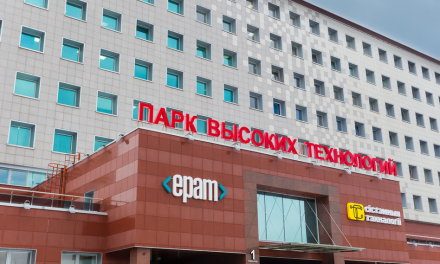Lack of trust from donors is one of the main problems faced by the charity industry. Often, nonprofit organizations don’t receive proper funding because donors are not sure whether their money will go to the right hands or the right project.
Blockchain technology is going to change this situation, bringing even more benefits to the space, with security and credibility guaranteed. Below are some prominent examples of blockchain implementations for social good.
WHIRL: a Blockchain Platform for Fundraising Campaigns
Entities involved: WHIRL
Project status: The platform was officially launched in December 2018, and now it is publicly available.
Sources: WHIRL website
WHIRL is a blockchain-based social platform where users can get financial backing for practically any social project they launch. Whether it be a scientific, educational, or, say, a philanthropic project, users can start fundraising campaigns with a minimum of effort.
The main requirement: you must support at least one of the currently active campaigns to get funds in return (this is done automatically via smart contracts). This way, by helping each other, users help themselves.
Blockchain technology ensures absolute transparency of fundraising campaigns and full availability regardless of their geographical location.
Making Education More Accessible with the Social Alpha Foundation
Entities involved: The Social Alpha Foundation (SAF)
Project status: the organization was founded in 2017 and has already raised over $1 m of donated funds for grants.
Sources: SAF website
SAF is a nonprofit organization that uses collected donations to support blockchain-focused educational initiatives and blockchain projects for social good. The size of the provided grants ranges from $10,000 to $100,000 depending on a particular project.
For example, the organization donated $30,000 to the winners of the Social Impact hackathon at the Impact Summit, where participants discussed the ways of practical blockchain implementation for social good.
Among other grantees, we need to mention the former founding member of Blockchain at Berkeley, students from MIT and University of Chicago, Amply (a blockchain project for tracking student attendance), Impact Ledger (a project curating blockchain’s social impact on various sectors), and more.
According to the SAF founder, Nydia Zhang, the provided funds are split into two groups: educational projects with the social impact of blockchain technology and blockchain applications in education, healthcare, and environment.
The World Identity Network: The Ecosystem for Digital IDs
Entities involved: The World Identity Network (WIN)
Project status: since its establishment in 2017, the organization has been making strides in advocating for the secure identity.
Sources: WIN website
The World Identity Network is a nonprofit organization with heavy involvement in human trafficking combat initiatives. Lost identities, child exploitation, orphan usage for profit — these are the problems WIN set its mission to fight with.
The organization proposes the idea of “blockchain passports,” digital documents securely stored on a distributed ledger with data organized in blocks. As the WIN states on its website, its work “focuses on more than a billion people without a recognized proof of ID; more than half of them are children,” which proves that the main organization’s focus is the problems of child abuse.
Throughout its existence, WIN collaborated with such global institutions as the World Economic Forum and the United Nations in its mission to build a blockchain platform for storing and managing digital identities.
Blockchain Charity Foundation: the First Decentralized Network for Social Good
Entities involved: Binance Charity
Project status: founded in 2017 by the Binance digital asset exchange, the organization now performs initiatives towards building the first global blockchain-based network for charities.
Sources: Binance Charity website
Blockchain Charity Foundation advocates for the transparency of blockchain in charity. This nonprofit organization already established its decentralized donation system with completely transparent transaction flows.
With a blockchain donation solution by Binance Charity, donors can see exactly where their funds are going. Due to the secure nature of blockchain, donated funds can hardly be intercepted by fraudsters on their way to beneficiaries.
This way, blockchain can increase donors’ trust in nonprofit organizations and eventually bring more donations to the charity sector.
Alice Protects Donations with Smart Contracts
Entities involved: Alice.si
Project status: in 2017, the company released a white paper, and now it continues raising funds for the pilot project.
Sources: Alice website
According to the company’s statement, “si” in the title stands for “social impact,” confirming the social nature of the platform. Built on the Ethereum blockchain, the platform ensures transparent and trusted donations.
Besides providing the ability to track donation flows, Alice.si “takes care” of donated funds by “freezing” them until the beneficiaries can demonstrate the results of their initiatives confirmed by an independent third party.
After confirmation, a corresponding smart contract “releases” the funds. If a nonprofit company didn’t manage to reach its goals in due time, the funds will be returned to the donor. As a result, the system ensures a trusted environment where donations cannot be lost due to illegal activities.
You may also like:
➔ Smart Contracts to Automate Workflows
Explore other smart contract application examples across industries.
World Food Program to Automate Food Aid with Blockchain
Entities involved: WFP Innovation Accelerator
Project status: established in 1961, now the organization has 23 projects across 30 countries focused on fighting against hunger.
Sources: WFP website
WFP Innovation Accelerator deals with the problems of global hunger, finding innovative solutions to them through mentorship, training, financial backing, and other activities performed for its members (startups, entrepreneurs, non-governmental entities, and others).
Among WFP’s practical blockchain implementations in charity, one should highlight Building Blocks, a DLT-based project that ensures direct cash transfers with beneficiary data cryptographically secured. By eliminating third parties, the system makes cash transfers less costly and faster, while cryptography ensures a high level of protection.
The pilot was first launched in January 2017 in Pakistan to test blockchain capabilities for secure transactions. Now Building Blocks in actively used for humanitarian needs in Jordan, automating cash-for-food aid operations and making them traceable. The technology has already helped more than 100,000 Syrian refugees in Jordan.
For those refugees who live in camps, Building Blocks provides the biometric authentication feature allowing for identification at local supermarkets via cameras at cash registers. All records are securely kept on the blockchain.
Taking care of humanitarian needs through direct cash transfers, in 2018, WFP managed to distribute money worth $1.6 m.
Verifying Class Attendance with Amply
Entities involved: ixo Foundation
Project status: the project was launched in 2015, and now it’s going through its second pilot stage.
Sources: Amply tech website
Striving to moderate the problems of improper identification of African school children, the Amply project aims to improve class attendance in South Africa through blockchain. With the Amply mobile dapp, teachers can instantly collect student attendance records, thus saving time on paperwork and then send this data to the Department of Social Development.
Each student recorded in the app has a unique ID, which allows teachers to track their attendance easily.
Attendance info is daily recorded in the ledger with a unique digital signature per student. All records are verified by an appointed evaluator. Upon approval, a smart contract “rewards” the corresponding institution with digital assets that can later be used for funding or receiving subsidies from the government.
Currently, the creators test the pilot project in 5 South African ECD centers aiming to integrate blockchain into the subsidy claim system fully. Upon adoption, it’s planned to extend the project’s usage across other educational establishments in South Africa.
Collecting Donations in Digital Assets with AidChain
Entities involved: ChariStars SA
Project status: introduced in 2018, the project now allows charity institutions around the world to accept digital funds.
Sources: AIDChain website
AIDChain is a project by the ChariStars Swiss fundraising company that brings donors and charities together on a decentralized network with secure local and cross-border payments guaranteed. The platform allows accepting donations in both digital and fiat assets and also provides own gateway for digital asset transfers.
To start receiving payments, all the participants need to do is to register an account with some info provided. Once the account is verified, they can create a wallet.
Yet in its early adoption stage, AIDChain is now planning to build a globally distributed platform for donors and charities, guaranteeing full transparency to all parties involved. The final goal is to make the platform a preferable donation method.
Besides charity organizations, AIDChain is going to provide its services to individuals and beneficiaries in the anticipated future.
Is Blockchain Shaping the Future of the Charity Industry?
Although blockchain is now only beginning paving its way towards adoption in the charity industry, the above use cases prove that significant progress has already been made. Most of these projects are still only pilots, but they already demonstrate how blockchain can increase trust in charity donations and cut operational costs.
You may also like:
➔ How Soon will Blockchain be Widely Adopted?
Study the last year’s survey by Deloitte to find the answer to this question.





Blockchain Insights
Join our mailing list to receive OpenLedger Insights publications weekly.
Thanks! Please check your inbox to verify your email address.
By clicking “Subscribe”, you’re accepting to receive newsletter emails from OpenLedger Insights every week. You can easily update your email or unsubscribe from our mailing list at any time. You can find more details in our Privacy Policy.